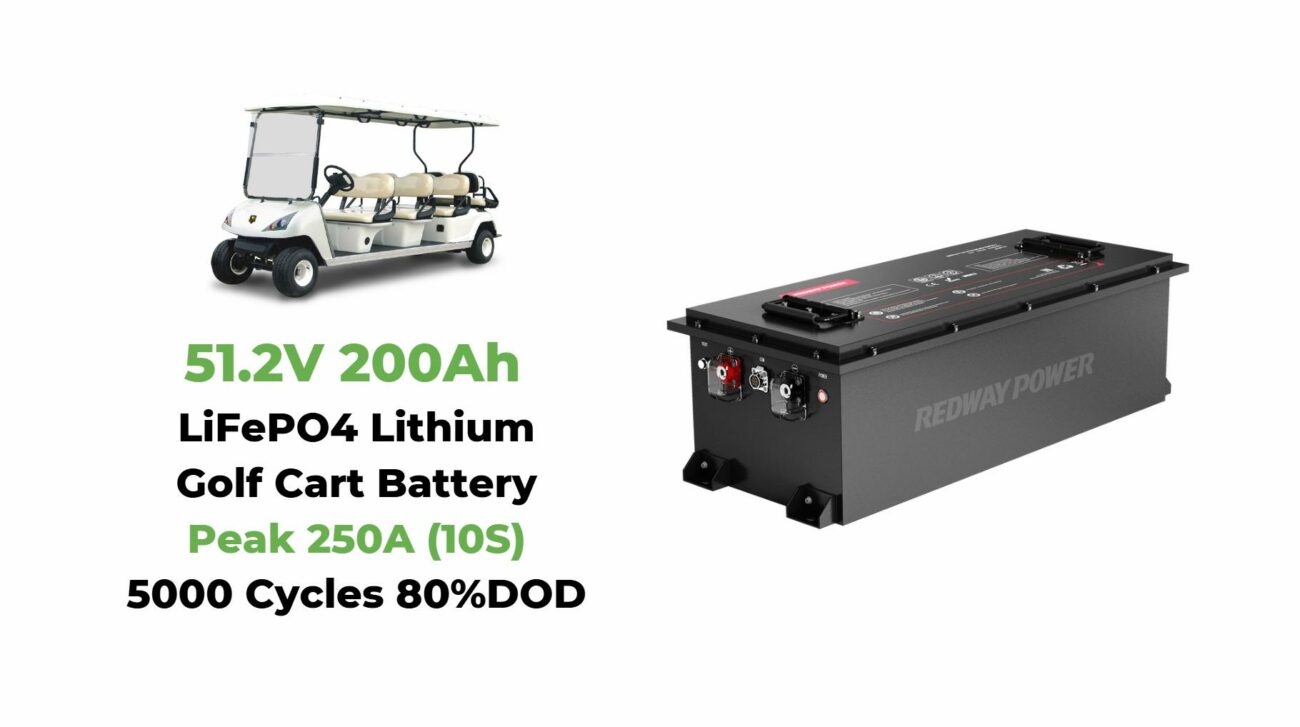How to Choose the Right 48V 200Ah Lithium Golf Cart Battery for Optimal Performance
Choosing the right battery is essential for maximizing performance in golf carts and other electric vehicles. A 48V 200Ah lithium golf cart battery offers significant advantages, including high energy density, long cycle life, and rapid charging capabilities, making it an ideal choice for both recreational and commercial use.
What are the key specifications of a 48V 200Ah lithium golf cart battery?
A 48V 200Ah lithium golf cart battery features a nominal voltage of 48 volts and a capacity of 200 amp-hours, allowing for extended usage between charges. It typically provides a peak discharge current that supports high power demands, making it suitable for various applications in golf carts and electric vehicles. The 48V 200Ah lithium golf cart battery typically features:
- Nominal Voltage: 51.2V
- Capacity: 200Ah
- Energy Capacity: Approximately 10.24 kWh
- Cycle Life: Up to 6,000 cycles at an 80% depth of discharge (DOD).
| Specification | Value |
|---|---|
| Nominal Voltage | 51.2V |
| Capacity | 200Ah |
| Energy Capacity | ~10.24 kWh |
| Cycle Life | >6000 cycles |
How does a lithium battery enhance performance in golf carts?
Lithium batteries provide higher energy density compared to traditional lead-acid batteries, allowing for longer ranges and better acceleration. This results in improved performance on the course, enabling golfers to travel longer distances without worrying about running out of power.
Why are fast charging capabilities important for golf cart batteries?
Fast charging capabilities allow golf carts to be quickly recharged between rounds, minimizing downtime. A 48V 200Ah lithium battery can often be charged in under 4 hours, making it ideal for busy golf courses that require quick turnaround times for their fleets.
What are the advantages of using lithium batteries over lead-acid batteries?
Lithium batteries offer several advantages over lead-acid batteries, including longer lifespan, typically lasting up to 10 years, compared to 3-5 years for lead-acid. They also charge faster, require less maintenance, and provide consistent power output without voltage drops as they discharge, enhancing overall performance. Lithium batteries offer numerous advantages over lead-acid batteries:
- Longer cycle life (up to 6,000 cycles compared to around 500 cycles for lead-acid).
- Higher energy density, resulting in lighter weight and compact design.
- Faster charging times, reducing downtime.
- Lower self-discharge rates, ensuring readiness when needed.
What applications benefit from a 48V 200Ah lithium battery?
A 48V 200Ah lithium battery is suitable for applications such as electric golf carts, low-speed vehicles, electric scooters, and renewable energy storage systems. Its robust performance makes it ideal for both recreational and commercial uses where reliable power is essential. These batteries are versatile and can be used in:
- Golf Carts: Providing reliable power for extended use.
- Electric Vehicles: Suitable for low-speed vehicles and electric motorcycles.
- Floor Cleaning Machines: Ensuring efficient operation in commercial settings.
| Application | Description |
|---|---|
| Golf Carts | Ideal for powering carts on golf courses |
| Electric Vehicles | Powers low-speed vehicles efficiently |
| Floor Cleaning Machines | Enhances productivity in commercial cleaning |
How does the battery management system (BMS) improve safety?
The Battery Management System (BMS) enhances safety by monitoring critical parameters such as voltage, current, and temperature. It prevents overcharging, deep discharging, and overheating, ensuring safe operation while prolonging battery life by balancing cell performance and protecting against potential hazards. A sophisticated Battery Management System (BMS) monitors the health and performance of the battery, providing crucial protections against:
- Overcharging and over-discharging.
- Short circuits.
- Temperature fluctuations.
This ensures safe operation and prolongs battery life.
What is the expected lifespan of a 48V 200Ah lithium battery?
The expected lifespan of a 48V 200Ah lithium battery can exceed 6,000 cycles when used properly at an appropriate depth of discharge. This longevity makes it a cost-effective choice over time compared to traditional lead-acid options.
How do environmental conditions affect battery performance?
Lithium batteries generally operate efficiently across a wide temperature range, typically from -20°C to +65°C. However, extreme temperatures can impact performance; thus, proper thermal management is essential to maintain optimal operation.
Industrial News
The demand for lithium batteries in the golf cart industry is surging due to their efficiency and performance benefits over traditional lead-acid batteries. Recent innovations include enhanced BMS technology that improves safety features and integration with solar charging systems. As more golf courses adopt these advanced solutions, customer satisfaction is expected to rise significantly.
Expert Views
“Investing in high-quality lithium technology is crucial for modernizing golf carts,” states an industry expert. “With their superior performance and safety features, these batteries not only enhance user experience but also contribute to sustainability efforts by reducing reliance on less efficient energy sources.”
FAQ Section
- What is the peak discharge current of a typical 48V 200Ah lithium golf cart battery?
The peak discharge current can reach up to 400A, allowing for significant power demands during short bursts. - How long does it take to charge a 48V 200Ah lithium battery?
Many models support fast charging and can achieve full charge in approximately 4 hours, depending on the charger used. - Are there any environmental considerations when using lithium batteries?
Yes, proper recycling and disposal methods should be followed to minimize environmental impact while benefiting from their efficiency.

